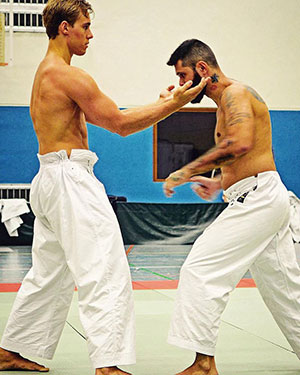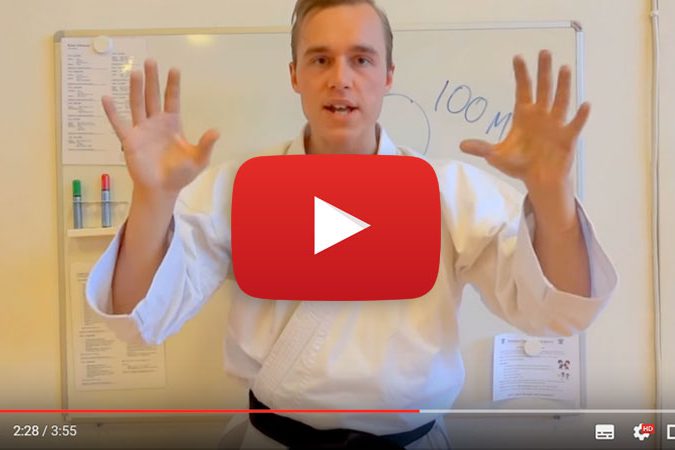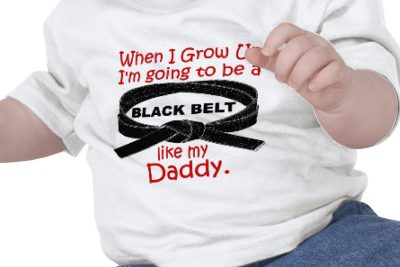“Relax more!”
 Have you heard a sensei say that?
Have you heard a sensei say that?
I have.
A gazillion times.
During my travels around the Karate world, dozens of masters have told me to relax more. I used to hear it in every dojo.
My techniques were too stiff, tense or awkward.
To be honest, this made me frustrated…
I knew I needed to relax more.
But it seemed impossible when someone commanded me to do it!
I used to get so angry at myself for this. I felt ashamed for not being able to do what my sensei wanted me to do. It was soul-crushing.
Until I started noticing a pattern:
The more I tried to relax, the stiffer I got.
Hmm…
Perhaps I should just stop trying?
*POOF!*
It was like a magic spell had been broken.
I became relaxed.
Holy cow!
That made me realize my mind is not separate from my body.
They are two sides of the same coin.
- A strong body cannot exist without a strong mind.
- A flexible body cannot exist without a flexible mind.
- A relaxed body cannot exist without a relaxed mind.
The problem was never in my body.
It was in my mind.
You see, in my struggle to relax, I had built up tension in my mind. This was reflected in every ounce of my body. The more I tried to relax, the stiffer I became. It was as unnatural as forcing myself to sleep.
So, I stopped trying.
I just…
Let it go.
And it worked.
It freakin’ worked man!
When I stopped trying to relax, relaxation happened to me.
It wasn’t forced. Simply allowed.
No effort involved. Just effortless.
And I think this can work for you too.
Try it out and let me know how it goes!
Or rather, don’t try…
(Get it?)
Good luck!
PS. Thanks to the 100+ Karate Nerds who attended my US seminar in Boston this weekend! A video of the dynamic hip mobility exercises is available this week only for members of Karate Nerd Insider. Looking forward to my upcoming seminars!



53 Comments